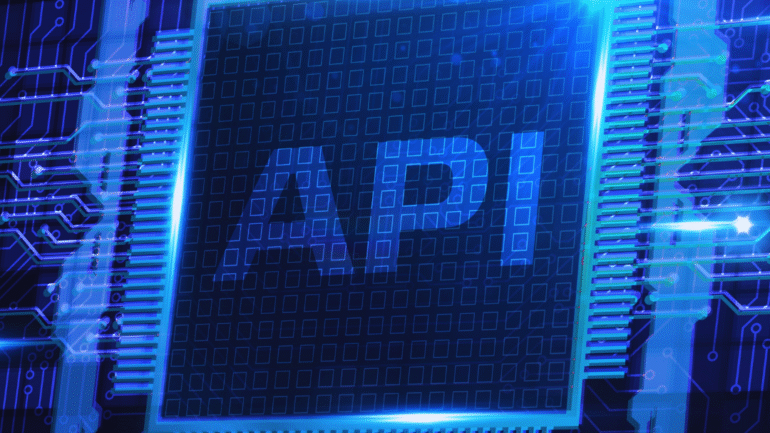What is Technology?
Technology, the embodiment of scientific knowledge and innovation, acts as the driving force for progress across numerous fields. In our modern era, virtually every industry, be it agriculture, manufacturing, or healthcare, relies heavily on technology and software to boost efficiency and foster innovation.
Take for instance, in agriculture, technologies like greenhouse management software empower farmers to keep tabs on crops from afar, and automate tasks, leading to better yields and less resource waste. Alternatively, in manufacturing, advanced robotics and automation make production smoother, elevating both productivity and the quality of goods. Meanwhile, in healthcare, telemedicine platforms bring care to remote areas, and electronic health records streamline patient information, ultimately improving outcomes.
Also, tools like hookstick switches represent a leap in industrial safety, providing a secure method to isolate electrical circuits during maintenance, safeguarding workers and infrastructure alike. You can learn more about them on the Web. Moreover, the Internet emerges as the epitome of connectivity, threading together billions of devices and minds to foster instantaneous communication, collaborative ventures, and boundless information access on a global scale. Truth be told, the list does not end here. There is more to it!
For instance, Boat Solar Panels represent a pinnacle of technological advancement in the marine industry. These innovative panels harness the power of sunlight to generate clean, renewable energy while out on the water. They offer a multitude of benefits, including reducing reliance on traditional fossil fuels, minimizing environmental impact, and providing a sustainable energy solution for marine vessels.
Within industrial realms, technology materializes in diverse forms, such as industrial air mixers, optimizing manufacturing processes through impeccable liquid blending and agitation. Furthermore, the widespread integration of GPS navigation systems, renewable energy solutions like solar panels, and cutting-edge medical equipment underscores technology’s omnipresent influence across sectors. In essence, technology serves as the bedrock of societal evolution, continually reshaping human interactions, enhancing productivity, and paving the path toward a brighter, interconnected future.
Put simply, technology has become an integral part of our daily lives, from communication and entertainment to healthcare and education. While technology has brought many benefits, it has also raised several ethical concerns and challenges, from privacy and security to the use of artificial intelligence and the impact of technology on employment and the economy. In this blog post, we will explore the ethics of technology, addressing some of the critical concerns and challenges that have arisen in recent years.
Privacy and Security
Technology has always been a source of both comfort and anxiety. On the one hand, it can offer us conveniences that we couldn’t previously imagine. On the other hand, it can be used to exploit and harm us. To address these concerns and challenges, we need to consider the ethics of technology.
One of the main ethical concerns with technology is its impact on privacy. Technology companies are always looking for ways to monetize user data, which can put users at risk of abuse and exploitation. For example, Facebook has been known to use user data in ad targeting, which can be invasive and creepy.
Another concern is the way technology can be used to control or manipulate people. For example, social media platforms have been implicated in causing mental health problems in some people. And artificial intelligence could soon become even more powerful than humans, potentially allowing machines to make decisions without human input that could have serious consequences.
There are also safety concerns with technology. For example, there’s worry about how AI will automate decision-making processes that could lead to accidents or disasters. And there’s concern about how autonomous vehicles will be utilized-in particular, whether they’ll be susceptible to cyberattacks that could cause them to crash or malfunction.
In addition to the aforementioned concerns, we must also address the growing prominence of bots in our digital landscape. Bots, automated software programs that can mimic human interactions, have found various applications in both benign and potentially harmful contexts. While they can enhance customer service and streamline certain tasks, it is also important to have a thorough understanding of bot security risks. Malicious bots can be programmed to infiltrate systems, steal sensitive information, or engage in online fraud, putting users’ data and privacy at even greater risk. These bots can also overwhelm websites and online communities with spam and fake interactions, making it difficult for genuine users to have productive and safe online experiences.
So what should we do? We need to consider the implications of our actions on privacy and security before taking them. We also need to ensure that our technology is ethically sound, so it doesn’t cause harm.
Employment and the Economy
Technology is having a significant impact on employment and the economy. It is responsible for the increasing use of computers, smartphones, and other electronic devices in everyday life. It has also led to the development of new technologies, such as artificial intelligence (AI), changing how we work and live.
There are concerns that the widespread use of technology may lead to job losses and decreased wages. However, there are also technological benefits. For example, it can make our lives easier by allowing us to do things faster or more efficiently. Additionally, it can help us stay connected with friends and family worldwide.
To address these concerns while still benefiting from the benefits of technology, we need to consider its ethics. This includes understanding how technology affects our emotions, relationships, and overall well-being. We also need to be aware of how we can use technology responsibly so that it does not negatively affect society or the environment.
Overall, technology is having a significant impact on employment and the economy. However, we must be aware of the consequences of using it responsibly.
Use of Artificial Intelligence
Artificial intelligence (AI) is a branch of computer science that designs and implements intelligent agents, which are systems that can reason, learn, and act autonomously. AI has been used in various applications, such as natural language processing, social network analysis, and data mining. There are concerns about the misuse of AI technology by governments, corporations, and individuals.
Some concerns about AI include its potential use for military purposes, surveillance, and discrimination. There are also concerns about the impact of AI on human welfare and the economy. The challenges faced when implementing AI include the following:
- Creating safe artificial intelligence systems that can be trusted.
- Developing effective methods for debugging AI systems.
- Understanding the ethical implications of using AI technology.
Society and Culture
Another concern is the impact of technology on society and culture. With the increasing use of technology, there is a growing worry about the erosion of privacy, the impact on social and personal relationships, and our mental and physical health. To address these challenges, it is vital for individuals and families to use technology responsibly and mindfully, to maintain a healthy balance between technology and other aspects of life, and to take steps to protect our privacy and security.
The Ethics of Technology and Our Responsibility
The ethics of technology are a complex and vital issue that deserves our attention and action. While technology has brought many benefits, it has also raised many concerns and challenges, from privacy and security to the impact of technology on employment and the economy. It is up to us as individuals, communities, and society to address these challenges and ensure that technology is used responsibly and ethically.
?This requires us to be informed, engaged, and proactive in our approach to technology and to promote transparency, security, and accountability in the technology industry. By doing so, we can help to create a better and more just world where technology serves the needs of society and enhances our quality of life.





